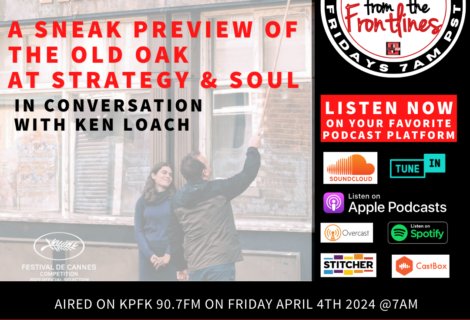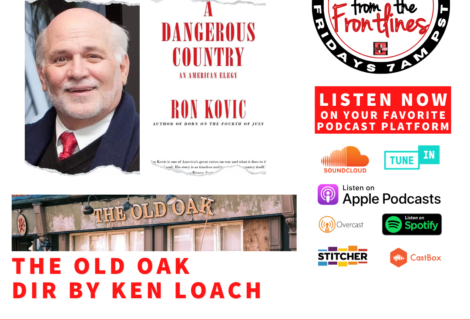Reclaiming the Militant, Radical, Revolutionary King on Dr. Martin Luther Kind Day
In celebration of the work and values of Dr. Martin Luther King, host Eric Mann reads his latest article which has recently been published in CounterPunch Magazine titled “A Radical Revolution of Values: Martin Luther King and the Black Revolutionary Tradition” . In reclaiming Dr. King’s revolutionary values Eric Mann Present to the readers and the listener the following points.
1) Dr. King understood the Civil Rights and Black Liberation Movement was from the onset a battle against the system itself.
2) Dr. king was a victim of capitalist state violence, surveillance, psychological character and actual assassination.
3) Dr. king was from the onset a black militant and revolutionary who advocated non-violent direct action but saw the “the Negro revolution” as the overriding objective.
4) SNCC, Malcolm X, Muhammad Ali, and M.L. King were on the front-lines of the movement against the U.S. war of aggression in Vietnam.
Near the end of the Show Eric take call-ins from the listener, in effect, giving the voices of the listeners the platform to share their profound thoughts and experience in the struggle.
Aired on January 20, 2014
Click here to download.
Commenting area
Leave a Reply
Leave a Reply
You must be logged in to post a comment.






Eric Mann gives us four reasons why Rev. Martin Luther King, Jr. should be understood as a central part of the Black radical tradition. Allow me to provide four reasons why his is one of the most important articles published in this season of over-written, under-studied MLK myth-making:
1. Like the wonderful photo of Minister Malcolm X and Dr. King together, Mann’s piece doesn’t dichotomize those two as opposites; he understands and explains the dialectic relationship which existed between them and exists in all great revolutionary movements. In addition to explaining some ways in which they connected, an area often neglected but neatly expanded in James Cones’ classic Malcolm and Martin and America (1992), Mann artfully sues King’s own words to explore the development of radicalism throughout the 1960s.
2. Our minds have been filled with images of “Martin Luther Dreaming King” and the 1963 Washington DC speech which is often excerpted beyond recognition to make King out to be some wide-eyed dreamer rather than a shrewd strategist. For all the faults that some have raised about the movie “Selma” (2014), at least that effort takes us to 1965 and shows that the movement was a bit more than just the work of one individual. Mann takes us a vital few steps beyond that – beyond King’s life itself – writing poignantly about his assassination and the threats he posed to the US establishment throughout his life.
3. Mann places King’s opposition to the Vietnam War in full anti-imperialist context, deepening our understanding of the significance of King’s 1968 position.
4. Mann writes of his own experiences as a young, rank-and-file student activist, influenced by King and others – but most significantly cognizant of the ways in which many of King’s actions were motivated by careful tactical considerations and not simply philosophical or theological callings.
Any serious 21st Century organizer should read Eric Mann’s concise article on Martin Luther King, and further our collective study of past revolutionary traditions as we build new traditions of our own.